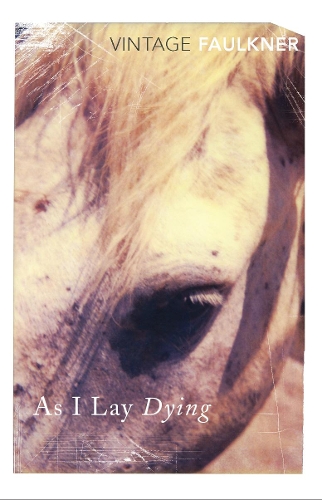
As I Lay Dying
(Paperback)
Publishing Details
As I Lay Dying
By (Author) William Faulkner
Vintage Publishing
Vintage Classics
22nd October 1999
4th January 1996
United Kingdom
Classifications
General
Fiction
813.52
Physical Properties
Paperback
256
Width 130mm, Height 199mm, Spine 17mm
181g
Description
'Brilliant and compelling - one is constrained to follow to the end' Spectator The death and burial of Addie Bundren is told by members of her family, as they cart the coffin to Jefferson, Mississippi, to bury her among her people. And as the intense desires, fears and rivalries of the family are revealed in the vernacular of the Deep South, Faulkner presents a portrait of extraordinary power - as epic as the Old Testament, as American as Huckleberry Finn.
Reviews
A masterpiece of dark humour * Daily Express *
The greatest American writers of the last century were William Faulkner and Saul Bellow...As I Lay Dying and The Adventures of Augie March: it's hard to think of two better novels written in this country in any century -- Philip Roth * Observer *
One of America's greatest writers * The Times *
A beautiful novel * Independent *
By universal consent of critics and common readers, Faulkner is now recognised as the strongest American novelist of the century, clearly surpassing (Ernest) Hemingway and (Scott) Fitzgerald, and standing as an equal in the sequence that includes Hawthorne, Melville, Mark Twain and Henry James . . . As I Lay Dying may be the most original novel ever written by an American -- Harold Bloom
Author Bio
Born in 1897 in New Albany, Mississippi, William Faulkner was the son of a family proud of their prominent role in the history of the south. He grew up in Oxford, Mississippi, and left high school at fifteen to work in his grandfather's bank. Rejected by the US military in 1915, he joined the Canadian flyers with the RAF, but was still in training when the war ended. Returning home, he studied at the University of Mississippi and visited Europe briefly in 1925. His first poem was published in The New Republic in 1919. His first book of verse and early novels followed, but his major work began with the publication of The Sound and the Fury in 1929. As I Lay Dying (1930), Sanctuary (1931), Light in August (1932), Absalom, Absalom! (1936) and The Wild Palms (1939) are the key works of his great creative period leading up to Intruder in the Dust (1948). During the 1930s, he worked in Hollywood on film scripts, notably The Blue Lamp, co-written with Raymond Chandler. William Faulkner was awarded the Nobel Prize for Literature in 1949 and the Pulitzer Prize for The Reivers just before his death in July1962.
